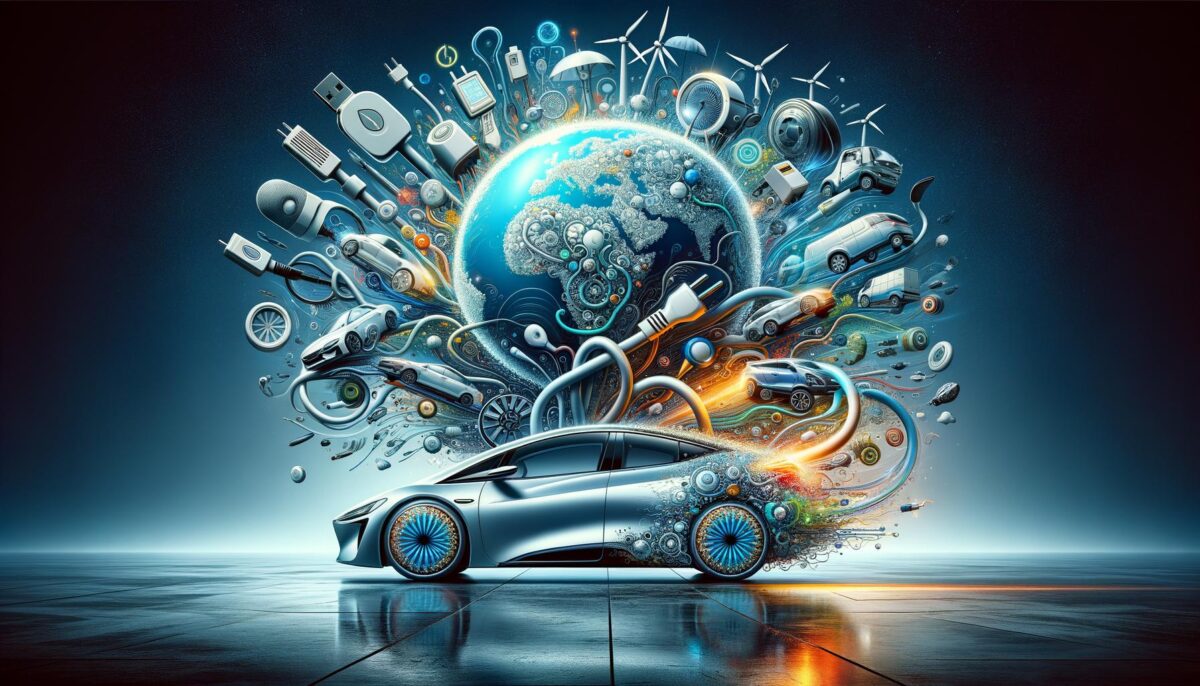The Rise of Electric Cars
In recent years, electric cars have emerged as a revolutionary force in the automotive industry, reshaping the landscape of personal transportation. As concerns over environmental sustainability continue to grow, electric cars have provided a viable alternative to traditional gasoline vehicles. This shift is driven by several key factors that make electric cars an enticing option for consumers. Primarily, their ability to reduce carbon emissions aligns with worldwide efforts to combat climate change. Furthermore, advancements in technology have dramatically improved the range and performance of these vehicles, making them increasingly practical for daily use. The demand for electric cars is on the rise as consumers become more conscious of their environmental footprint and seek sustainable solutions for their transportation needs.
Advantages of Electric Cars
Electric cars offer a multitude of benefits that are attracting a growing number of drivers. One of the primary advantages is their environmental impact. Electric cars produce zero tailpipe emissions, significantly reducing air pollution and contributing to cleaner urban environments. Additionally, electric cars are generally more energy-efficient than their gasoline counterparts. They convert around 60% of the electrical energy from the grid to power at the wheels, whereas conventional gasoline vehicles only convert about 20% of the energy stored in gasoline.
- Lower running costs compared to gasoline vehicles
- Reduced noise pollution and smoother operation
- Government incentives and tax credits available in many regions
These benefits, combined with the modern design and cutting-edge technology found in electric cars, make them a compelling choice for anyone looking to embrace a greener lifestyle.
Challenges Faced by Electric Cars
While electric cars boast numerous benefits, they also face challenges that affect their adoption. One significant hurdle is the initial purchase cost, which remains higher than many traditional vehicles. However, this cost is gradually decreasing as technology advances and production scales up. Another concern is the limited infrastructure for charging stations, which can be a deterrent for potential electric car owners. Range anxiety, or the fear of running out of charge before reaching a destination, is another issue that manufacturers are actively addressing by improving battery technology. Despite these challenges, the future for electric cars looks promising as investments in infrastructure and technological innovations continue to grow.
Technological Advancements in Electric Vehicles
Electric cars have witnessed remarkable technological innovations that enhance their performance and user experience. One of the most significant advancements is in battery technology, which has led to extended range capabilities and faster charging times. Modern electric cars can travel hundreds of miles on a single charge, making them suitable for long-distance travel. Additionally, smart technologies are being integrated into electric cars, offering features such as autonomous driving, vehicle-to-grid communication, and advanced infotainment systems. Electric cars are also equipped with regenerative braking systems that capture and reuse energy, further improving efficiency. As technology continues to evolve, electric cars are expected to offer even more advanced features that cater to the needs and preferences of modern drivers.
The Future of Electric Cars
The outlook for electric cars is exceedingly positive, with market trends indicating accelerated growth in the coming years. Governments around the world are implementing policies to support the adoption of electric vehicles, including stricter emissions regulations and incentives for electric car purchases. Car manufacturers are investing heavily in research and development to introduce new and more affordable models to the market. Additionally, the cultural shift towards sustainable practices is driving consumer demand for electric cars. As public awareness and acceptance grow, electric cars are poised to become a mainstream mode of transportation, redefining how we think about travel and environmental responsibility.
Conclusion
Electric cars represent a significant step forward in the shift towards sustainable transportation. As they become increasingly accessible and practical, they offer a compelling option for environmentally conscious consumers. Despite the challenges they face, technological advancements and supportive policies continue to bolster their growth and acceptance. By choosing electric cars, drivers can contribute positively to the future of the planet, enjoying a cleaner, more efficient, and technologically advanced driving experience.
